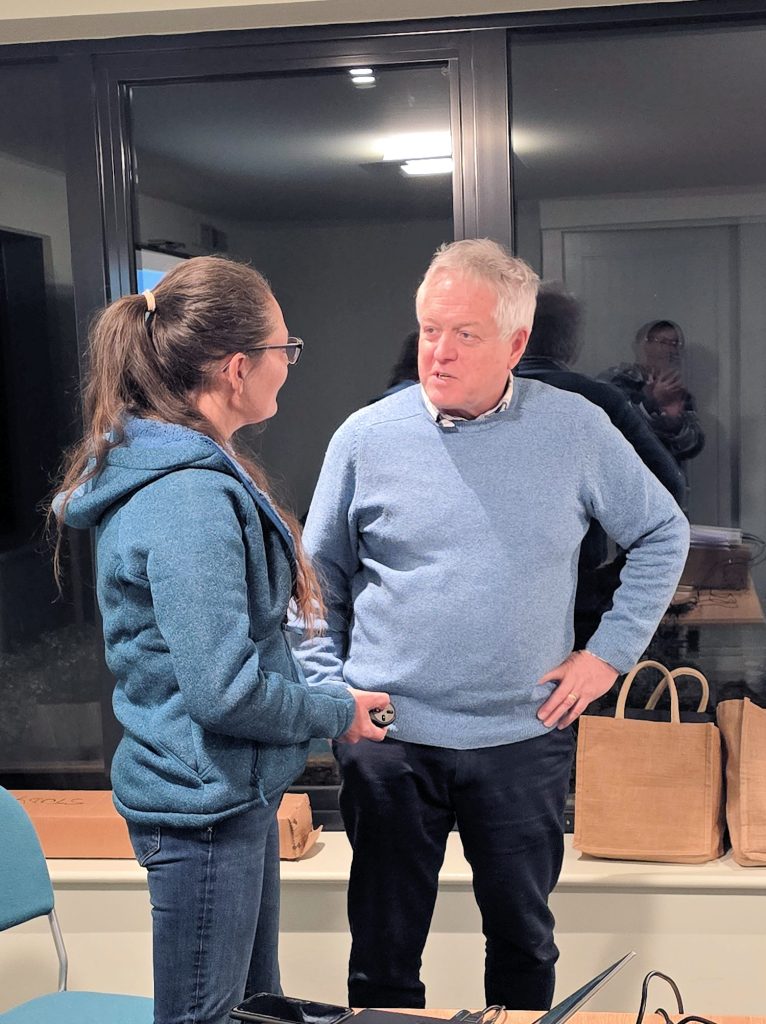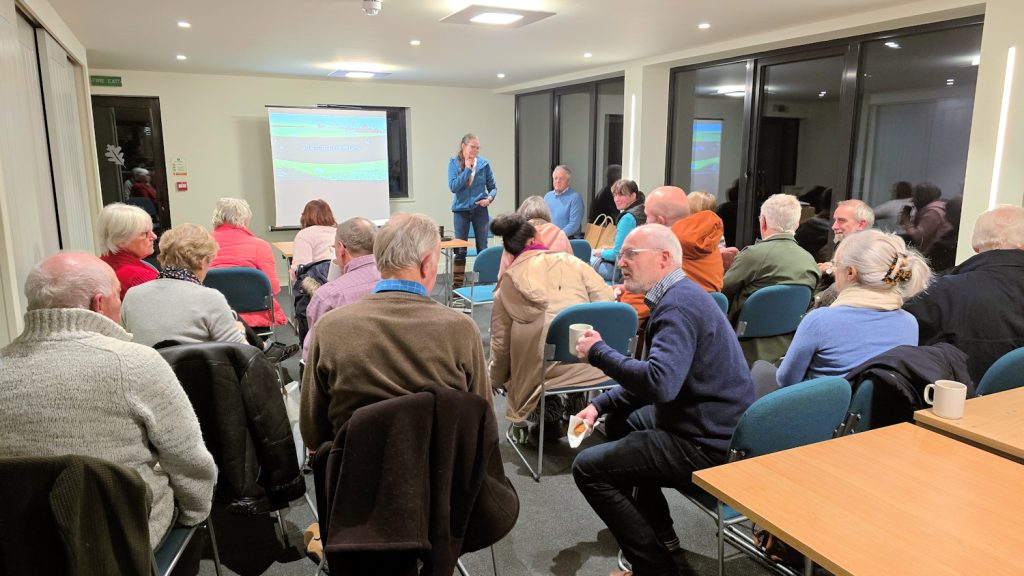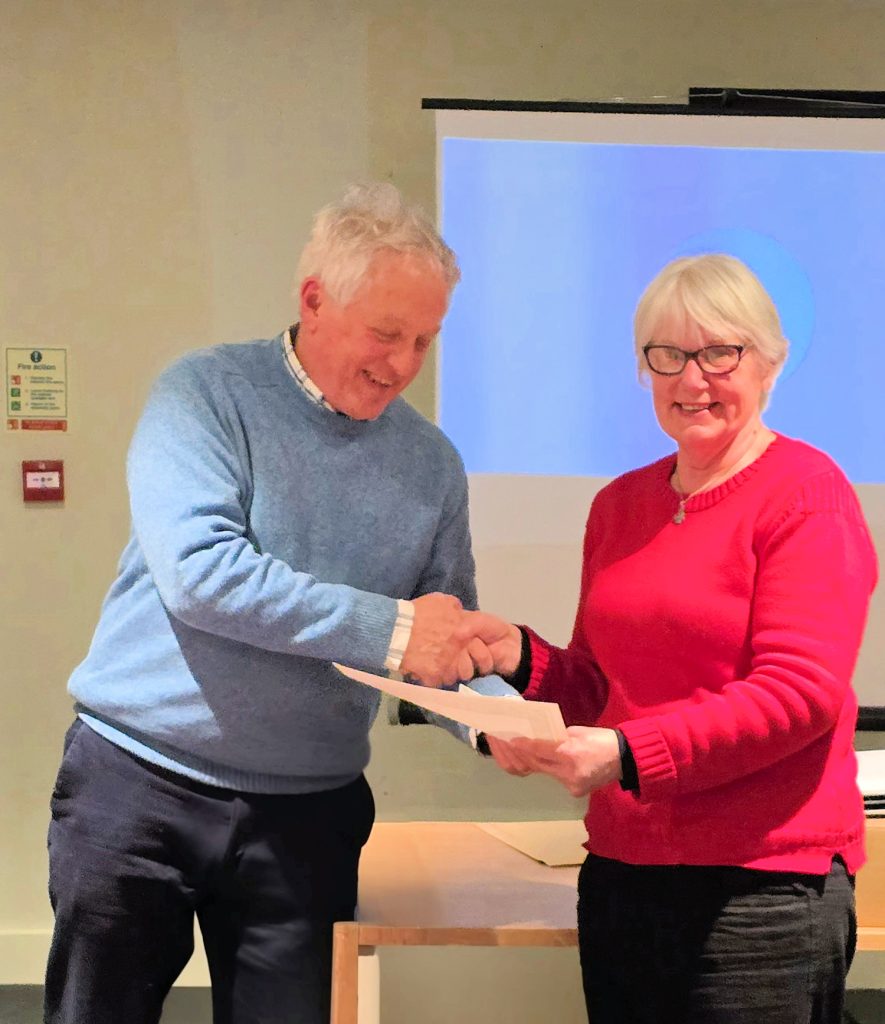Interesting? Definately
Thought provoking? Oh yes
Challenging? At times
I think just about all of the 30-odd Shipston members who attended our first 2nd Monday meeting of 2025 would agree with all the above. Colleen Reichling had come to talk to us about her role as a Seasonal Bee Inspector (SBI).



At one level it was interesting to know how she came to be a SBI, what the role involves and how she goes about juggling the many demands on a SBI. Colleen explained how they do inspections based on risk, and within that, how important BeeBase is to bee inspectors. In discussions of dealing with suspected outbreaks of Foulbrood she gave us some useful tips on preventing foulbrood, for example
- Keep healthy bees
- Bio-security is so important
- Clean hive tools (always have a soda bucket)
- The use of isolation apiaries, and
- Managing swarming
One question we asked Colleen was ‘where is the best place to site an apiary’. Coming at the answer as an SBI, whose job it is to inspect all colonies within 3kms of a colony known to have EFB or AFB, her answer was ‘5kms from any other apiary’. But this is where it got thought provoking as Colleen showed us a BeeBase plot of high- and medium-risk locations – and it became clear that it might be nigh-on impossible to find a new site that was 5km from any other apiary. Indeed Colleen challenged us that it might be that we are getting to the point where there are just too many beekeepers and apiaries. One solution to this, Colleen suggested, was to make more use of Community Apiaries – now that is an interesting thought.
And here are some more of the challenging points Colleen raised….
Why did we make the Yellow-legged Asian Hornet YLAH) a beekeeper problem? Apparently from studies they only predate honey bees once they have taken most other insects. A YLAH nest will consume around 11Kg of insects a year of which about 40% are honey bees. It’s a big pollinator problem but with beekeepers making all the noise about YLAH her concern was that it’s seen primarily as a problem for beekeepers and not for everyone who depend on pollinators.
Colleen also opined that there are just not enough seasonal bee inspectors (just 21?). Because of the increasing volume of work, one SBI task that Colleen has simply not had time to do is to inspect imported queens. Is this a problem? Well Queens are imported from Italy. Small Hive beetle has been identified in Southern Italy. In today’s (Fri 17th) BBC news, the following article is about a tree frog being found in roses……if a tree frog can get into the country undetected then we all need to be ready to identify the small hive beetle!
https://www.bbc.co.uk/news/articles/ckgy1le9ewko
There was more (for example the Republic of Ireland does not have bee inspectors, and is it realistic to think we could put out monitoring traps for YLAH every 500m as recommended but then being able to check them every 2-3 days) but Colleen finished by asking all of us to support the National Bee Unit. Not just by ensuring we are registered on BeeBase but also by making sure we keep our bees healthy and adopting self-help when suspecting foulbrood by getting Branch members with the right knowledge and skills (for example those with the Bee Health Certificate) to inspect suspected foulbrood before an SBI is called.
I said it was interesting, thought-provoking and challenging! Indeed we had quite a discussion about it in the Committee WhatsApp group over the next couple of days. That has not happened before after a talk. And clearly some of Colleen’s comments reflect her personal views and experiences and are not necessarily NBU official policy.
More awards
We finished on a high with Lys Cowap receiving her Basic Assessment certificate.

We thank David Blower MB for arranging this talk, and Julia and Paul Neal for the refreshments (mmmm, rocky road!).